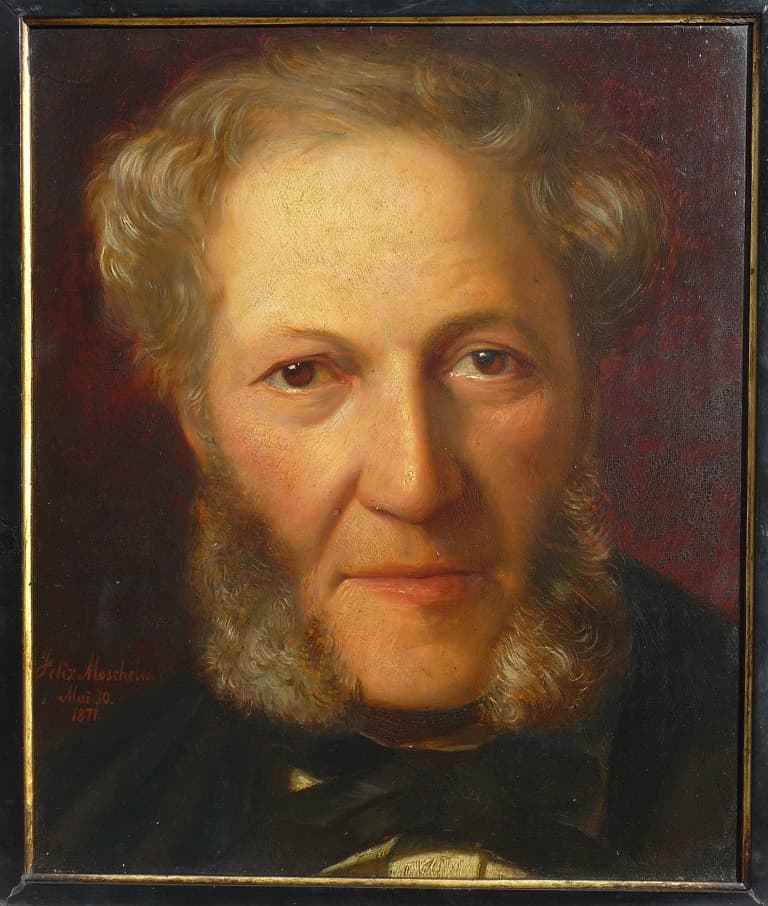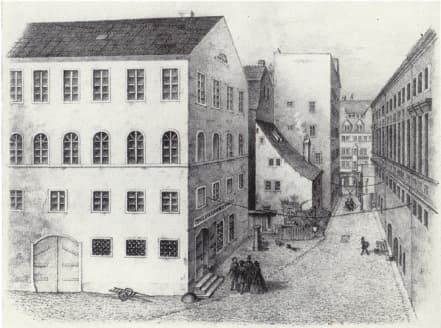Ignaz Moscheles (1794-1870) was one of the most renowned virtuoso pianists of his time. A critic in 1821 wrote, “He is one of the best players that we have ever heard. He has Clementi’s science, Cramer’s expression, and Kalkbrenner’s brilliance. His execution is amazing, but this is a quality that ought to be only valued as a mean. The merit of this performer consists in his making such a right application of his genius, and such a wise use of the mean acquired by his indefatigable industry, as show him to be a man of taste and judgment.” A teacher of Mendelssohn, Thalberg and Litolff, Moscheles was appointed professor of piano at the Leipzig Conservatory in 1846, and his reputation and skill as a teacher were important factors in the continued success of that institution.

Ignaz Moscheles
Ignaz Moscheles: Piano Concerto No. 3 in G minor, Op. 58 (Gerhard Puchelt, piano; Hamburg Radio Symphony Orchestra; Hans Schmidt-Isserstedt, cond.)
Moscheles, it was said, had a habit of telling his students at length about the composers and notable people he had met in his long and busy career. And frequently, he would get carried away, forgetting all about teaching. Of course, his verbal excursions were on occasion welcomed by his students, as it concealed the fact that they were not as well prepared as they might have been.

Leipzig Conservatorium
One morning Sir Arthur Sullivan and the violinist Carl Feininger arrived for their lessons to find the usually smiling Moscheles with a downcast expression on his face. Arthur Sullivan was concerned and asked, “Herr Professor, what is the matter with you? Are you ill?” Moscheles simply shook his head and pointed towards the piano for Sullivan to begin his lesson. Carl Feininger was one of Moscheles’ favorite students, and when it was his lesson time he insisted to be told what bothered his teacher. Moscheles relented and said, “I got up this morning and dressed myself, but when I sat down to eat my breakfast there was no butter. So I sent my maid to fetch some butter, and she came back with the butter wrapped in a page of my G-minor concerto.” Good help then and now, it seems, is always hard to find!
For more of the best in classical music, sign up for our E-Newsletter
